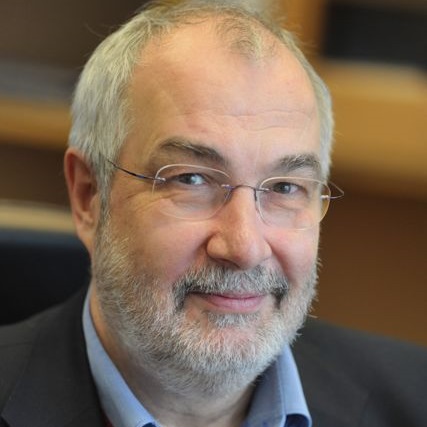( Register for ATAED | Proceedings at CEUR-2371 )
 Keynote by Wolfgang Reisig: How to analyze BIG systems? Process mining and region theory study transition systems. For BIG systems, composed of many loosely coupled components, corresponding transition systems become unmanageably large, and compositional techniques are mandatory. I suggest a "universal" composition operator, and ask for corresponding compositional analysis techniques.
Keynote by Wolfgang Reisig: How to analyze BIG systems? Process mining and region theory study transition systems. For BIG systems, composed of many loosely coupled components, corresponding transition systems become unmanageably large, and compositional techniques are mandatory. I suggest a "universal" composition operator, and ask for corresponding compositional analysis techniques.
| Tuesday, June 25 | |
| . | |
| 09.00 - 10.00 | Wolfgang Reisig. (Keynote) How to analyze BIG systems? |
| 10.00 - 10.30 | Raymond Devillers, Evgeny Erofeev, Thomas Hujsa. Synthesis of Weighted Marked Graphs from Circular Labelled Transition Systems. |
| . | |
| 11.00 - 11.30 | Jörg Desel. Can a Single Transition Stop an Entire Net? |
| 11.30 - 12.00 | Adrian Puerto Aubel, Carlo Ferigato, Federica Adobbati, Stefano Gandelli. Two Operations for Stable Structures of Elementary Regions. |
| 12.00 - 12.30 | Nassim Laga, Marwa Elleuch, Walid Gaaloul, Oumaima Alaoui Ismaili. Emails Analysis for Business Process Discovery. |
| . | |
| 13.30 - 14.00 | Ronny Tredup, Christian Rosenke. On the Hardness of Synthesizing Boolean Nets. |
| 14.00 - 14.30 | Alessandro Berti, Wil van der Aalst. Reviving Token-based Replay: Increasing Speed While Improving Diagnostics. |